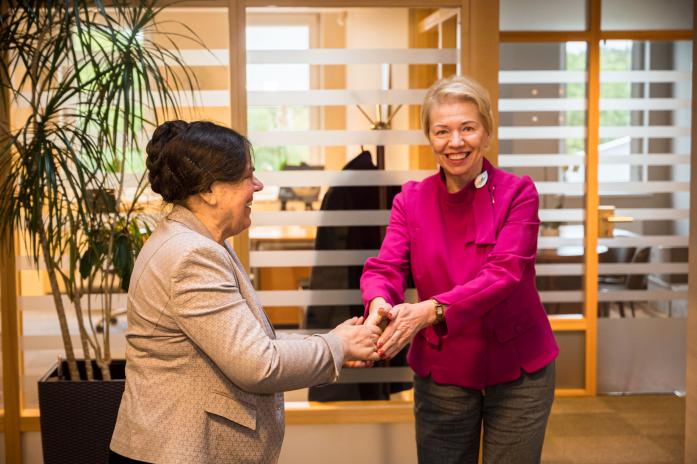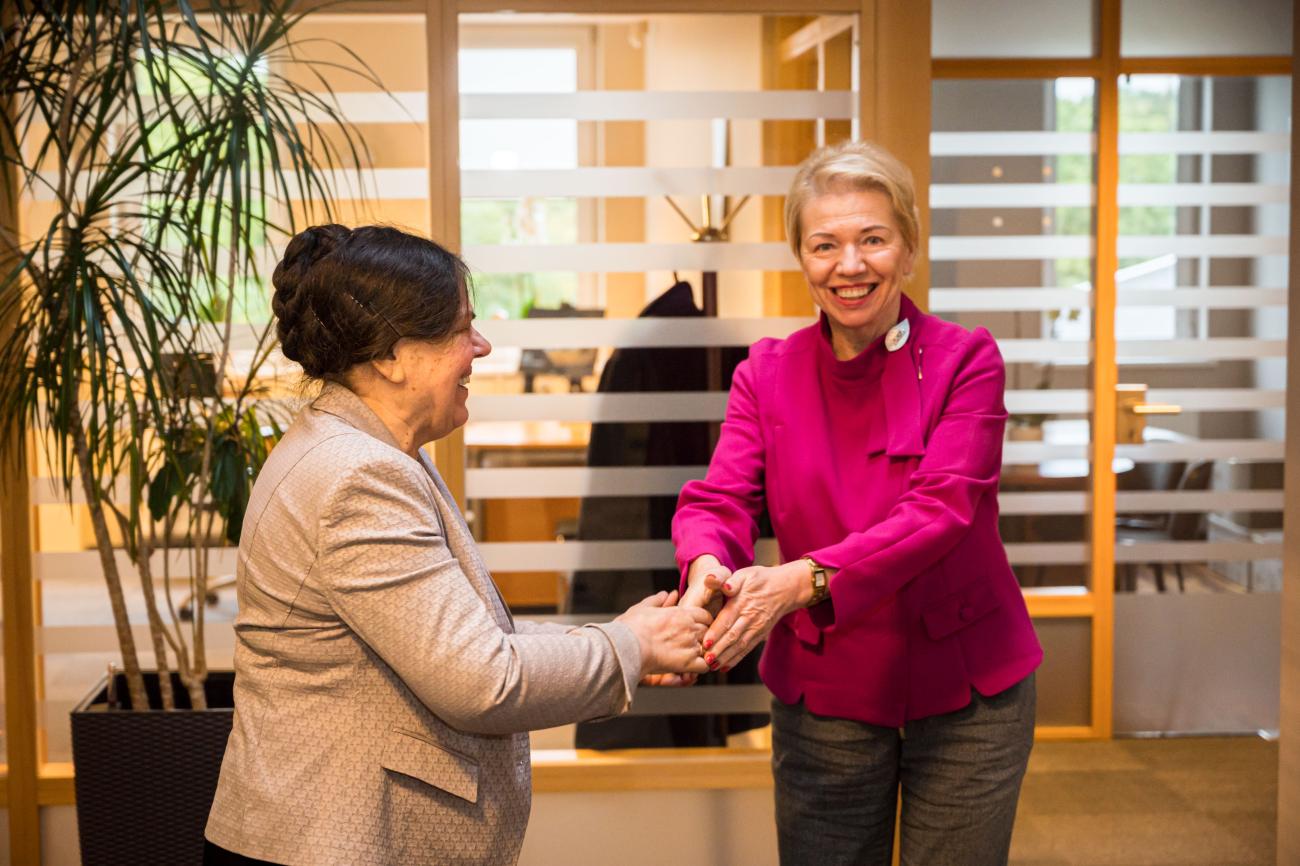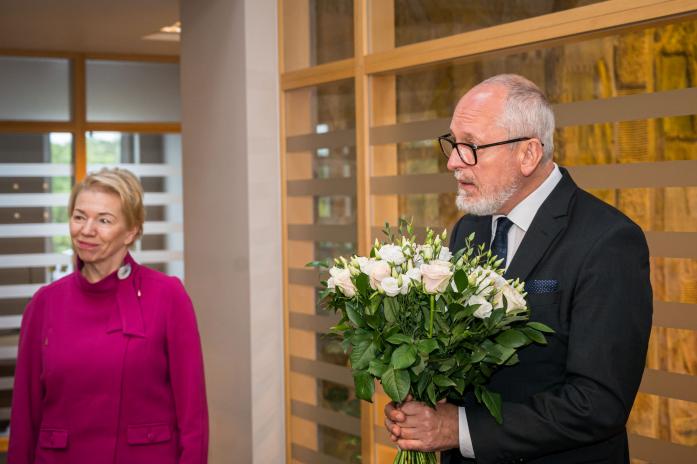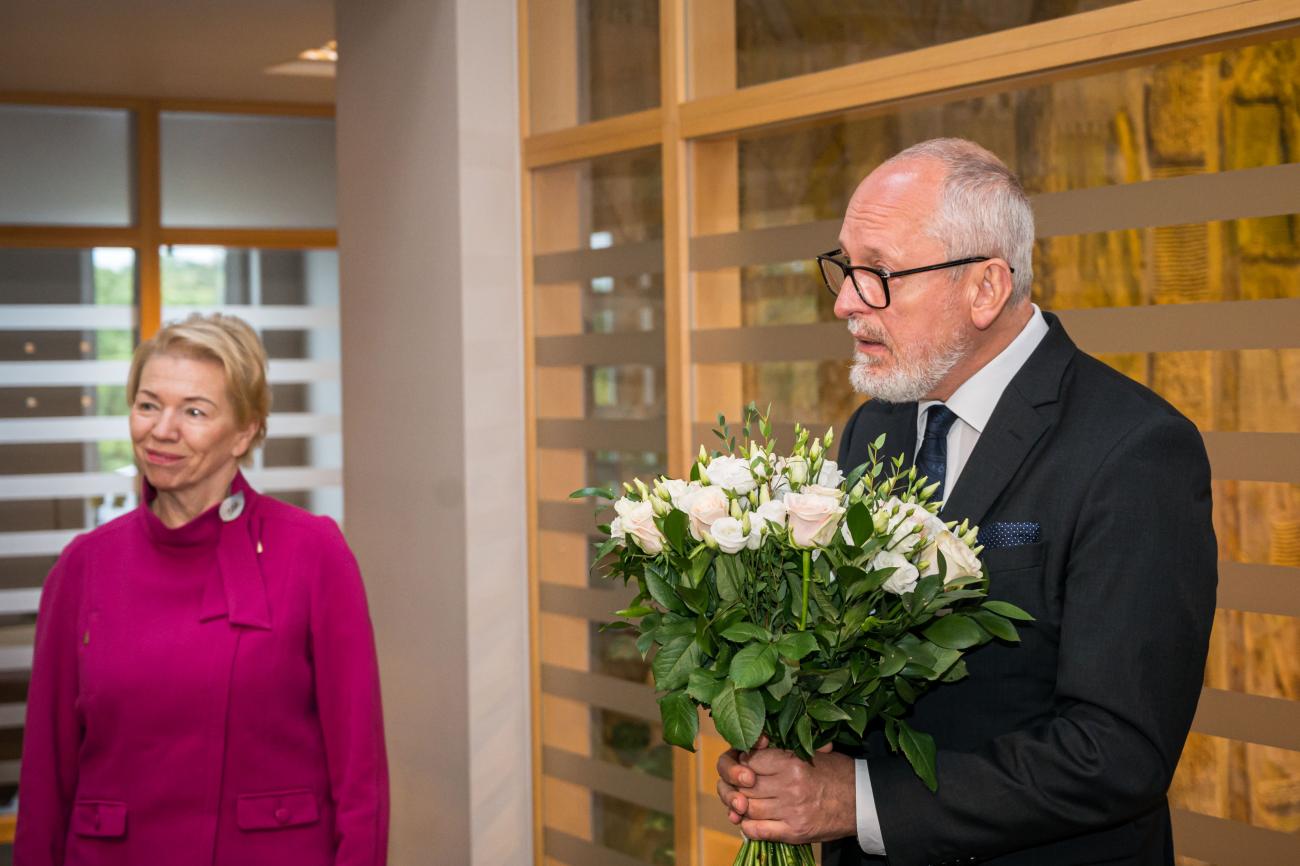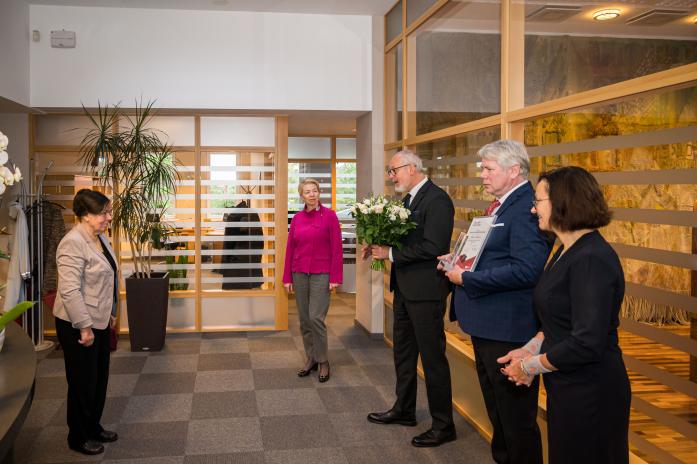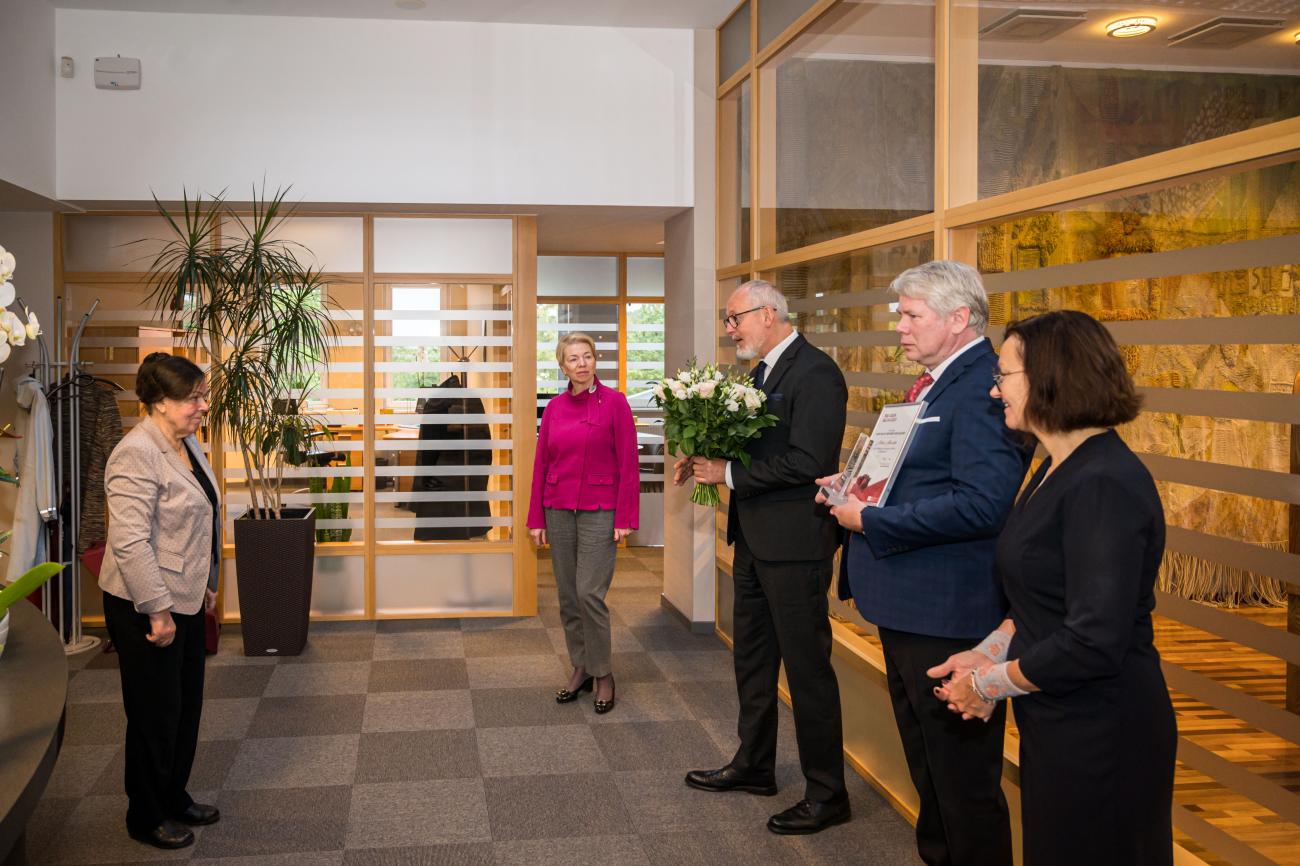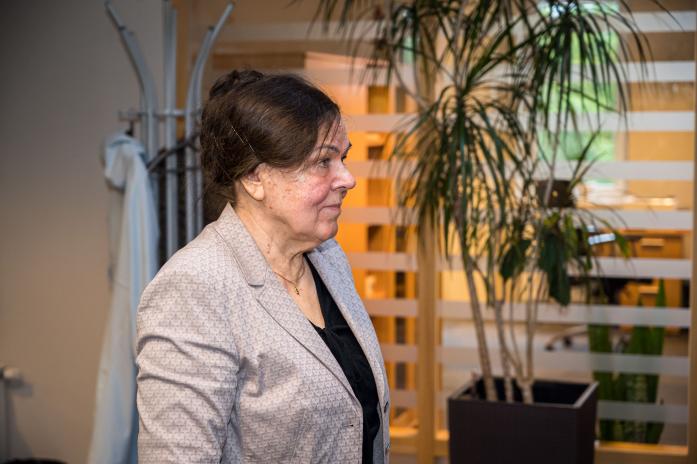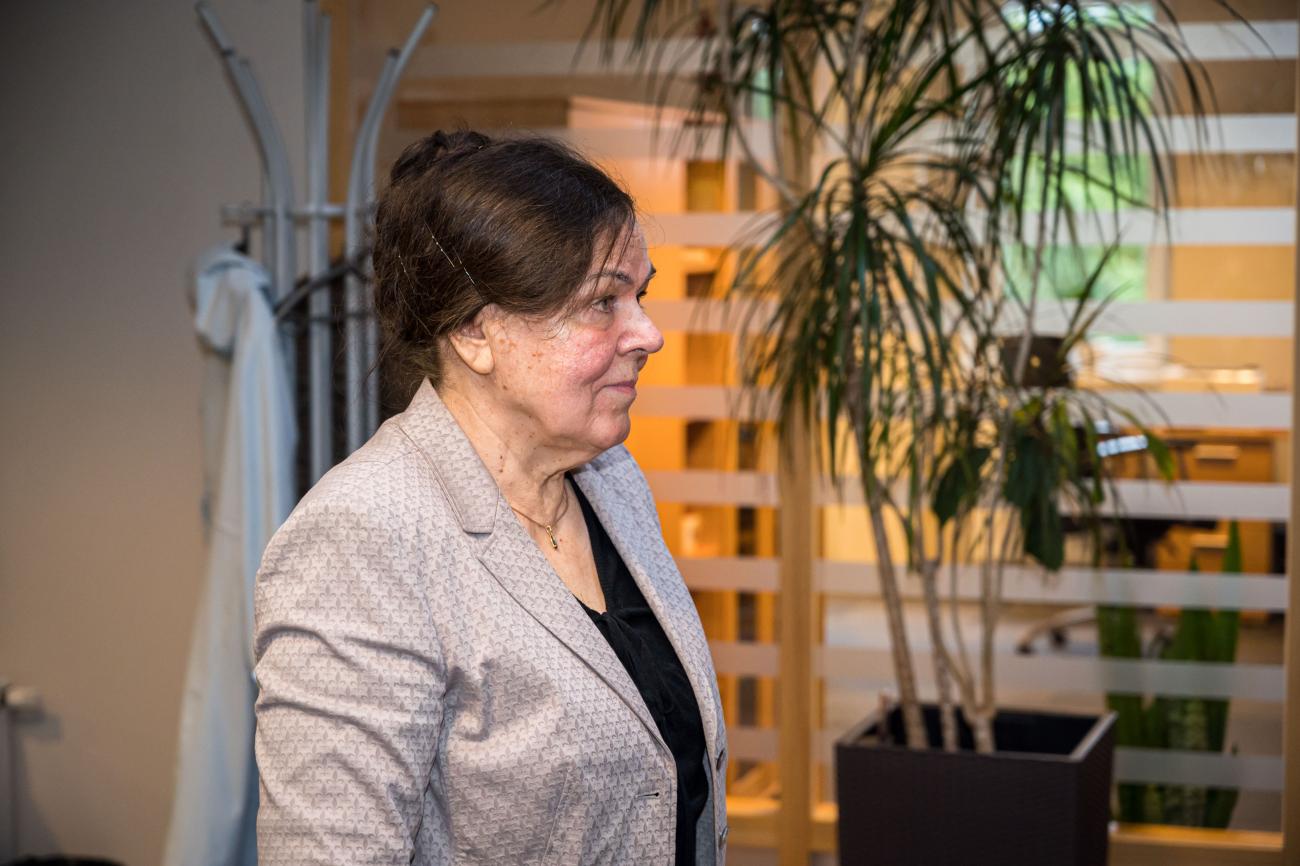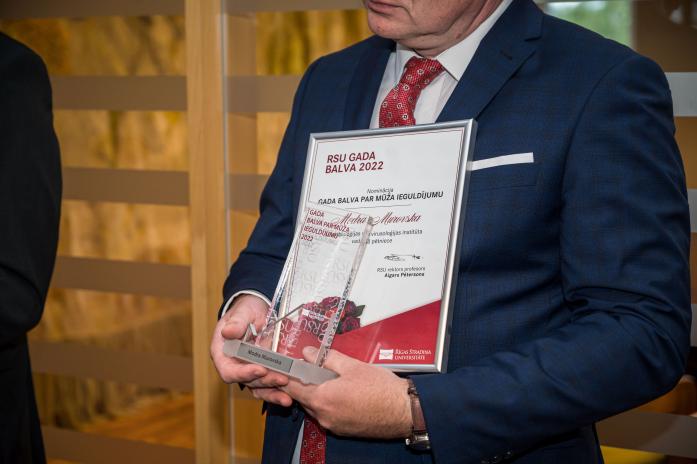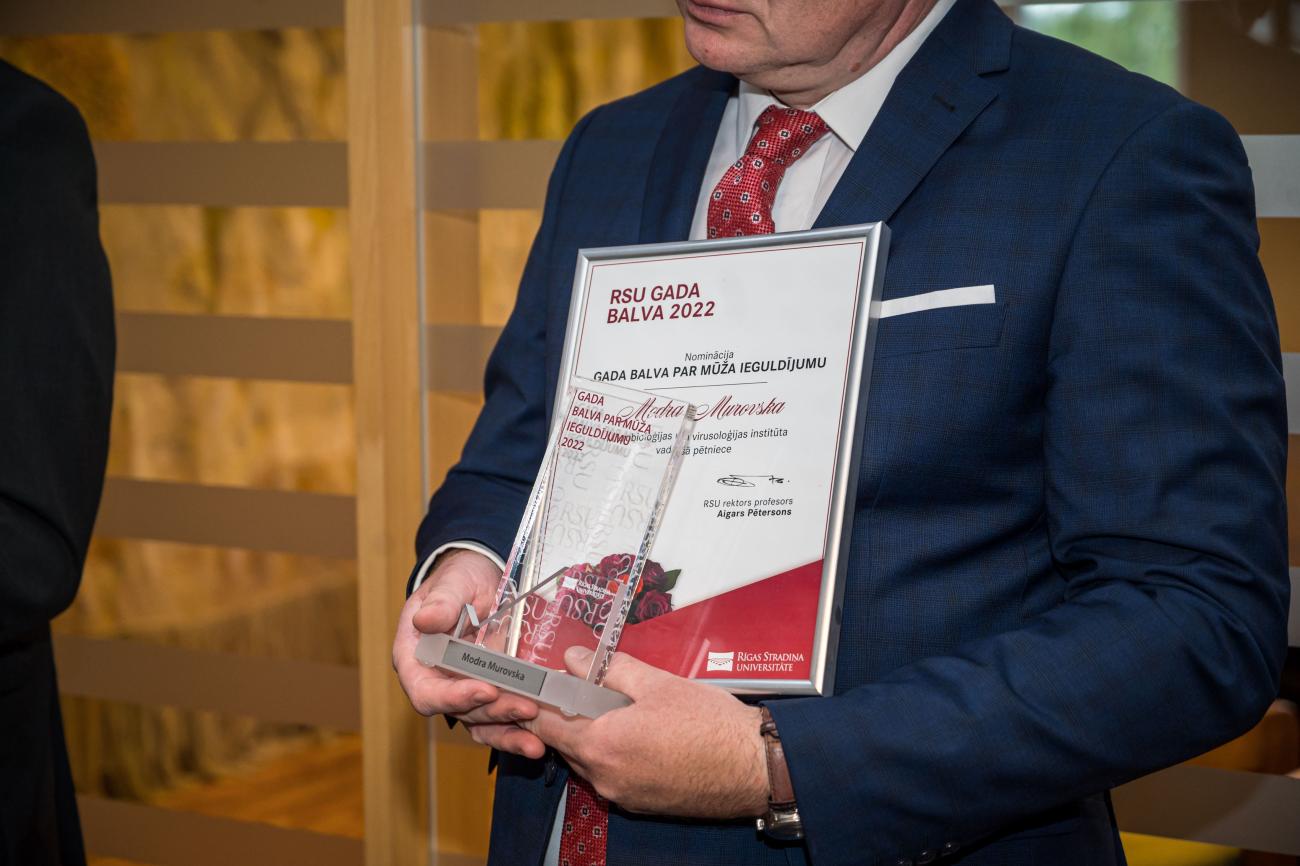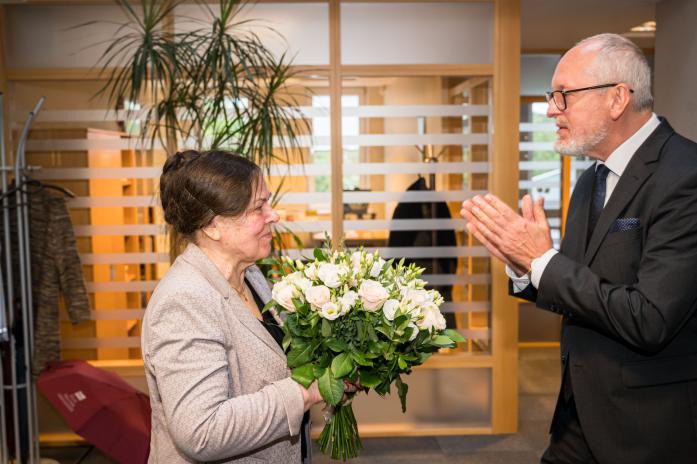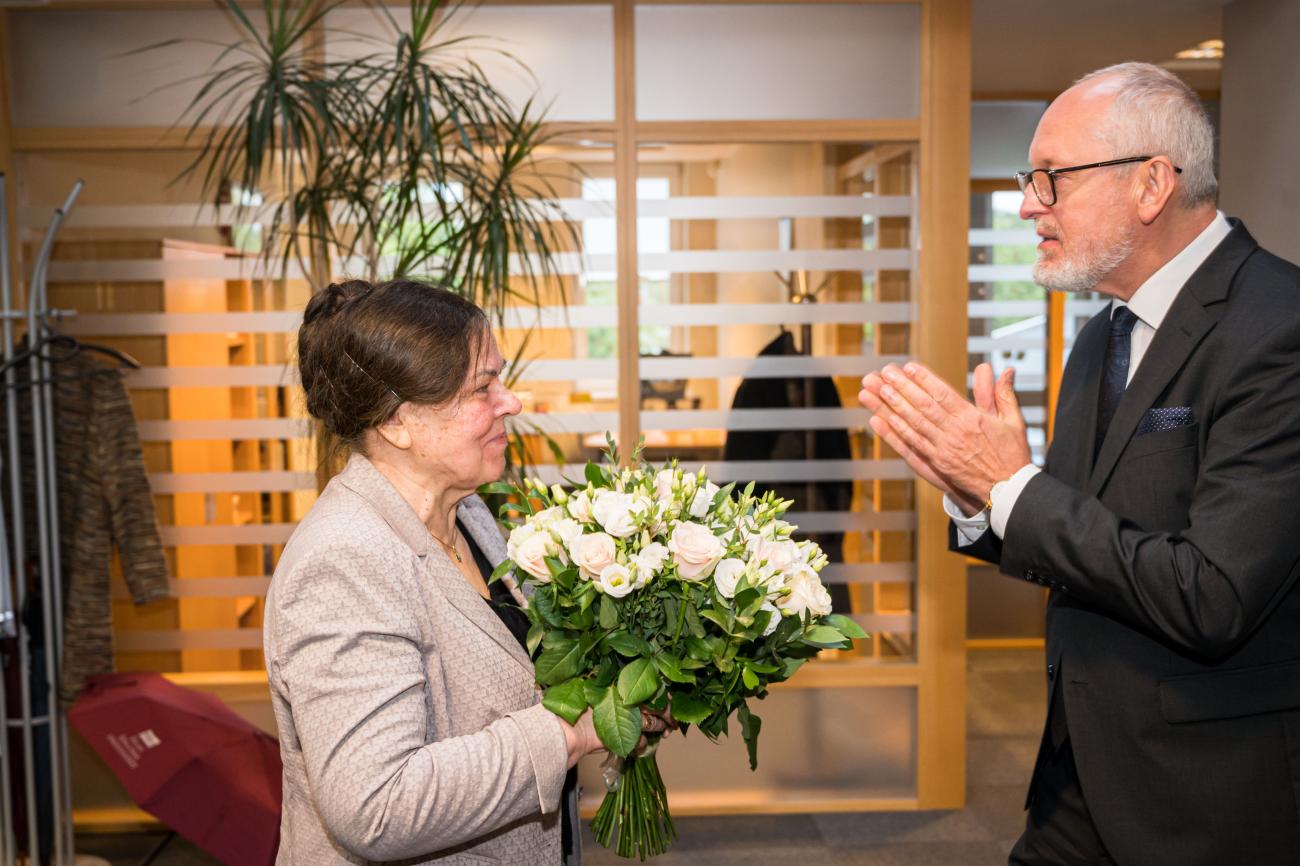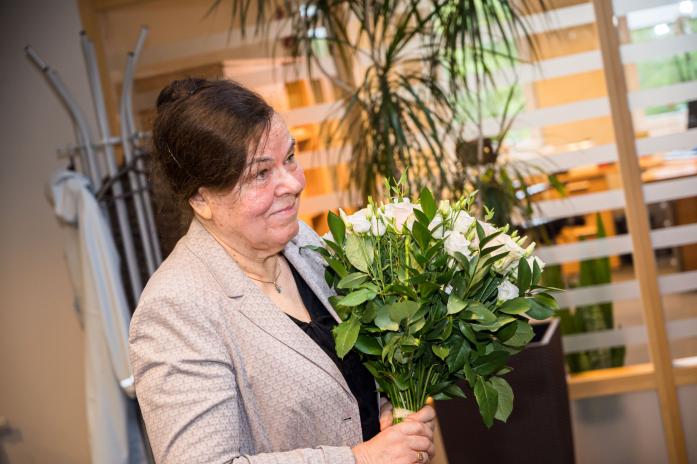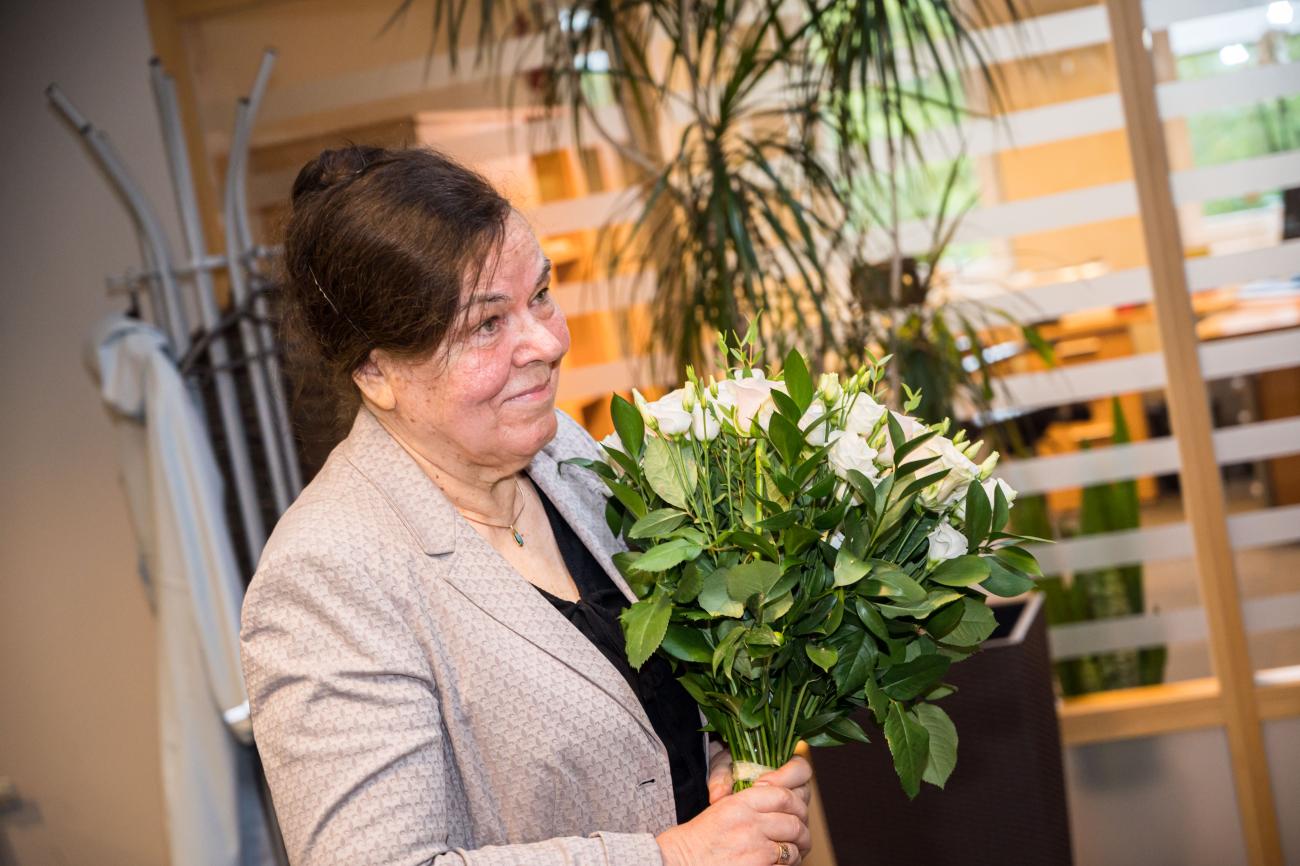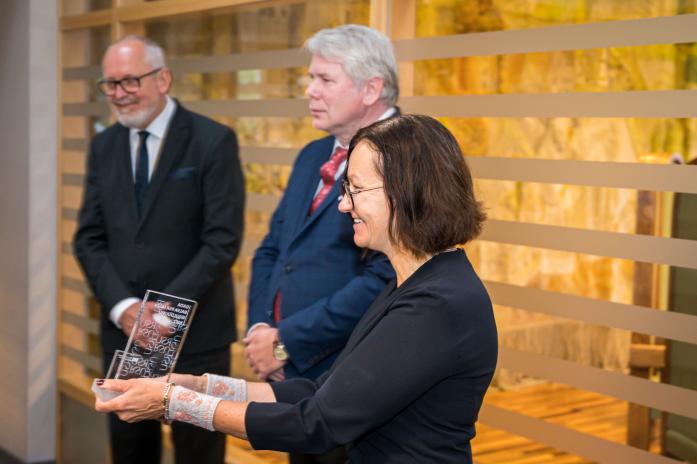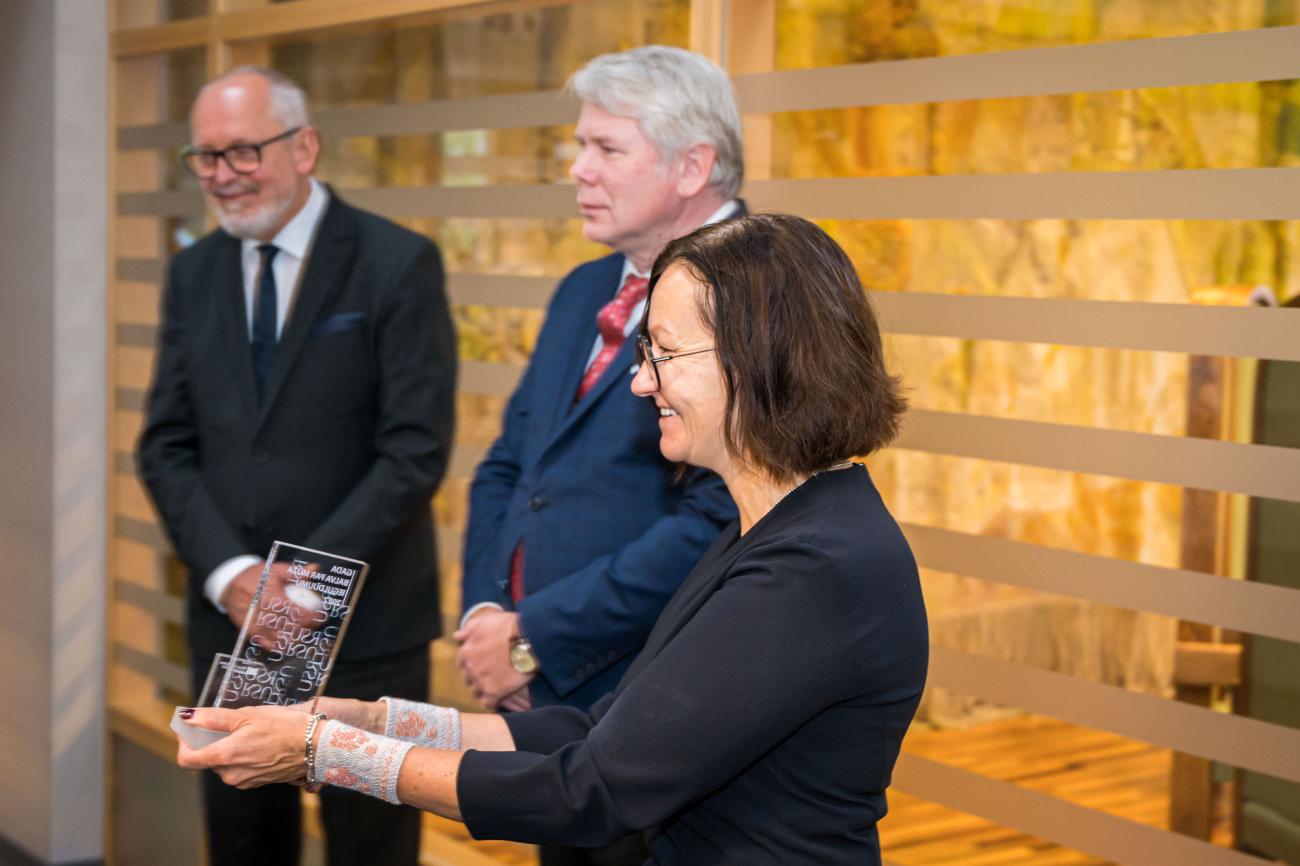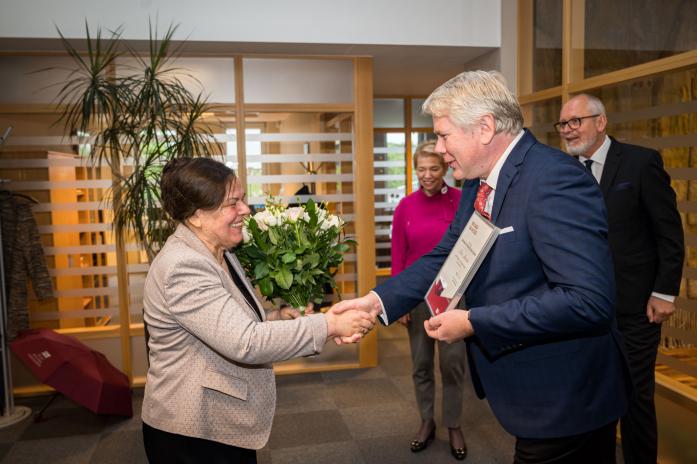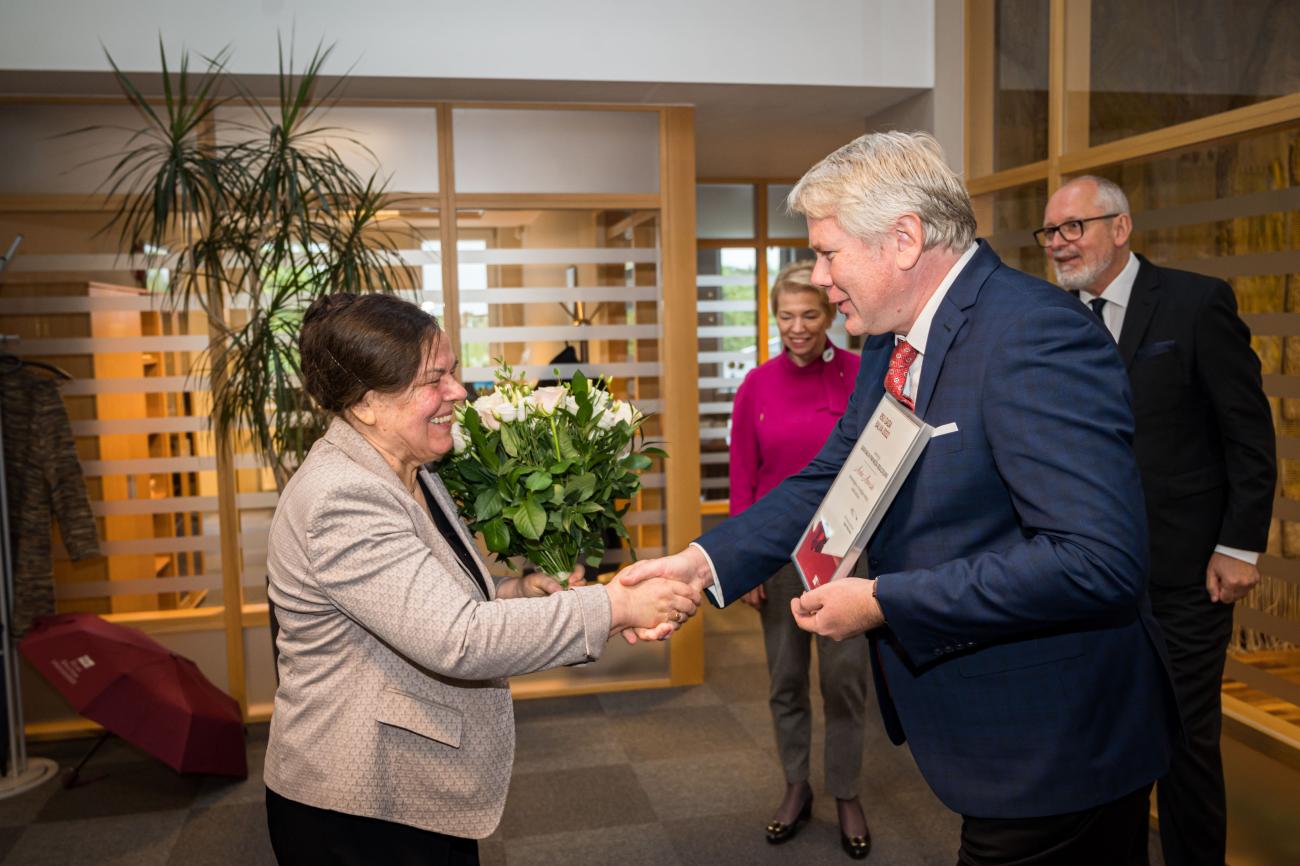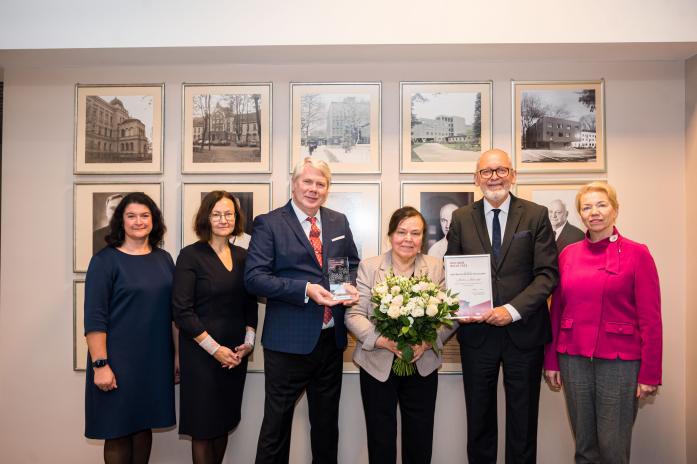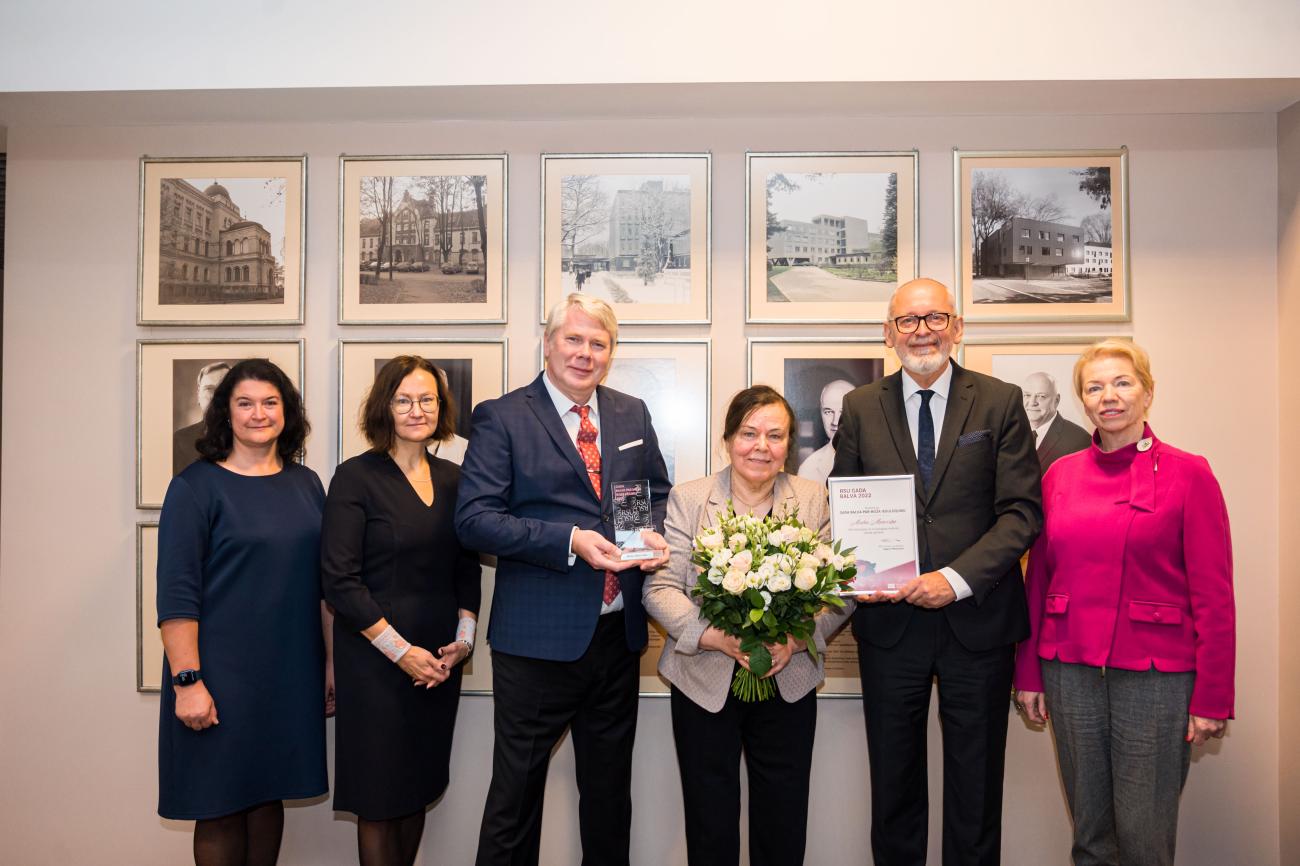Senior Researcher and Virologist Modra Murovska: ‘We Need to Learn to Live with Viruses!’
Although Modra Murovska, a senior researcher and virologist at Rīga Stradiņš University (RSU), has been working at the Institute of Microbiology and Virology for 50 years and has just received the RSU Lifetime Achievement Award, her work is far from over. She has two ongoing projects and studies diseases that involve viruses, but are not infectious, together with colleagues from the institute.
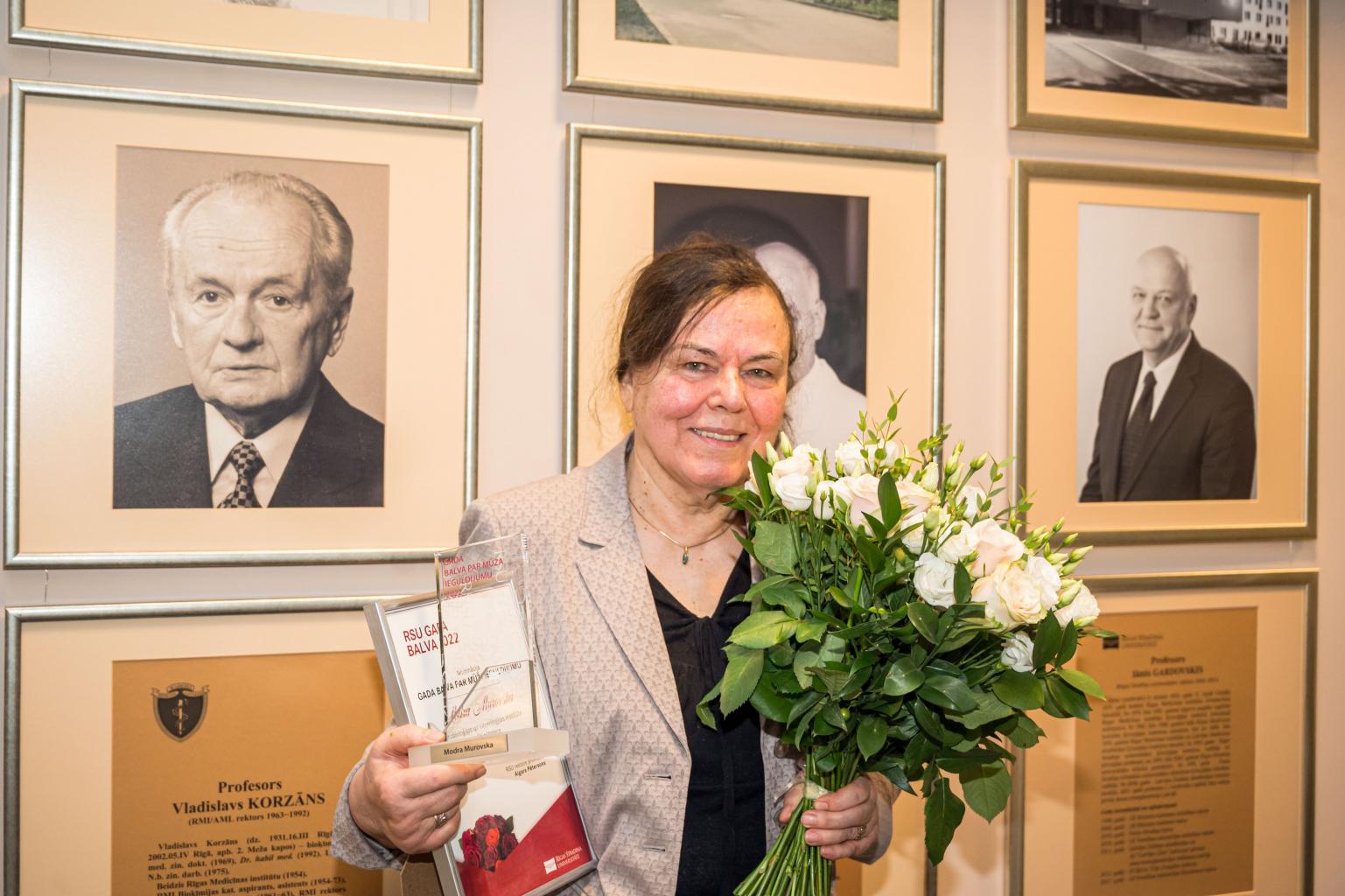 Modra Murovska, Senior Researcher at the RSU Institute of Microbiology and Virology
Modra Murovska, Senior Researcher at the RSU Institute of Microbiology and Virology
‘These are diseases that mainly affect the nervous system and autoimmune diseases, diseases where a virus is the triggering factor. Recently, there has been a lot of talk about myalgic encephalomyelitis or chronic fatigue syndrome, which has become an issue in cases of long COVID or post-COVID syndrome. This is when a person feels tired for six months or more and has the same symptoms as with chronic fatigue syndrome,’ Murovska says explaining the work she does.
‘If COVID patients feel fatigue for an extended period of time, they develop this new disease – chronic fatigue syndrome. We can therefore conclude that SARS-CoV-2 is not so harmless after all. It is a so-called autoimmune virus, which initiates and triggers various autoimmune diseases.’
In addition to the above, Murovska studies other diseases with her colleagues at the institute, such as autoimmune thyroid diseases, where a virus is one of the most common triggers, and a number of autoimmune diseases of the blood system. ‘We also study chronic diseases such as osteoarthritis and rheumatoid arthritis, which are associated with having viral infections as a trigger.
It's all very exciting and there is so much that is still unknown! Researchers are particularly interested now that these cases of long COVID have emerged.’
In their studies, scientists at the Institute of Microbiology and Virology use patients’ biological material (blood, saliva, urine, etc.) to look for the virus as well as antibodies and other markers of viral infection. The data is then matched with the patient’s clinical picture in order to find patterns and make new discoveries one step at a time.
Do you know everything about viruses?
Absolutely not, because no one can ever know everything about viruses! New viruses emerge every year. Just when you think you know, something new comes along.
Can we entertain the idea that viruses will take over the world one day?
I do not think it is possible. Viruses are clever, but we are clever, too.
Are young people interested in virology? Is there a new generation at the Institute of Microbiology and Virology?
Yes, young specialists are coming to us! But their educational background has changed. When I started working at the institute, most of us were researchers with a medical background, now they are biologists. At the institute, it is only I and the lead researcher Šimons Svirskis who are doctors with a medical degree: Diāna Arāja is a pharmacist, and our new employee Lauma Ieviņa is a physiotherapist.
Our new colleagues first came to the institute to work on their semester papers, then on their bachelor’s and master’s theses, and then started their doctoral studies. Those who have defended their doctoral theses now form the core of the institute.
What is the situation regarding science and research in Latvia? In an interview in 2013 you said that the situation is tragic referring to researchers’ low salaries. Has anything changed in recent years?
The situation has maybe improved a little, but there are young people who do not stay with us because of the low salaries. Unfortunately, we have to accept that. You cannot survive on a researcher’s salary and still support your family.
In your opinion, what personal traits does one need to improve or develop in order to become a virologist?
You have to be very organised and precise, because you cannot make mistakes. And responsible, too! If you do make a mistake, you have to admit it so that it does not escalate and turn into a big waste of money and time.
You have to be interested in learning and researching all the time. If you work with no interest in the outcome, you are a science worker, not a scientist.
Which scientific achievements still amaze you?
There are a lot of them! For example, how new techniques can be devised, such as the polymerase chain reaction invented in 1983 by American biochemist Kary Mullis, which allows scientists to take a very small sample of DNA and amplify it (or part of it) to an amount large enough to be studied in detail. Mullis won the Nobel Prize in Chemistry in 1993 for this invention.
Another virus season has started in Latvia with people getting sick with various other viruses alongside COVID. What do you to avoid getting sick and strengthen your immune system?
If you eat a healthy balanced diet, exercise regularly, and get the right amount of sleep and rest, you should have a good immune system. However, with the current prevalence of COVID, I would recommend taking extra vitamin D as it really helps, including foods that contain vitamin C, such as cranberries and rowanberries.
We should learn to live with viruses! And remember not to overdo it and start taking various supplements and immunity-boosting drugs without needing to!
If your family doctor tells you to take something, you should take it, but otherwise do not overdo it! There is no point in buying everything without thinking.
Autumn is not only characterised by viruses, but also by the harvest. Do you go picking berries and mushrooms?
I have not yet this year, but I love mushrooms! I do not like picking berries, though, because it takes too long and it is too hard, especially if you have to spend half the day picking cranberries in a marsh... (Laughs)
What worries you in Latvia today?
Looking at what is happening in the world and in Latvia at the moment, I think about what is going to happen to the elderly people in our country who have small pensions – I do not see how they will be able to survive. These matters and the entire system are disorganised. I know a lot of people with pensions below 500 EUR. How will they be able to live in the winter with such high heating costs?
I am very worried about the bureaucracy at the university and in science. When I first started, we did more work and research than paperwork. Now, there’s an endless stream of papers – you can barely manage to fill one out in before the next one comes.
The Latvian parliamentary elections took place on 1 October. Did you vote?
Yes, I did! I think it is a great opportunity to make your voice heard.
Facts about Modra Murovska
- Modra Murovska has been working at the RSU Institute of Microbiology and Virology (formerly Augusts Kirhenšteins Institute of Microbiology and Virology) since 2 September 1972. She began her career there as a senior laboratory technician and later becoming the director of the Institute. She is currently a senior researcher at the institute.
- Full Member of the Latvian Academy of Sciences since 2012.
- State Emeritus Scientist since 2019.
- Her scientific work is devoted to the study of viruses and the diseases they cause.
- Graduated from the Riga Medical Institute as a paediatrician in 1972.
- Obtained the degree of Candidate of Medical Sciences in Oncology (experimental oncology) in 1978.
- Received the degree of Doctor of Medicine in virology (nostrification) in 1992.
- 2010 RSU Annual Science Award
- 2017 RSU Annual Researcher of the Year Award
- 2001 Morrison Rogosa Award from the American Society for Microbiology
- Modra Murovska participated in one of the most significant scientific achievements of 2017 in the Latvian Academy of Sciences competition: “Impact of Persistent Viral Infections in the Development of Nervous System Diseases”.
Related news
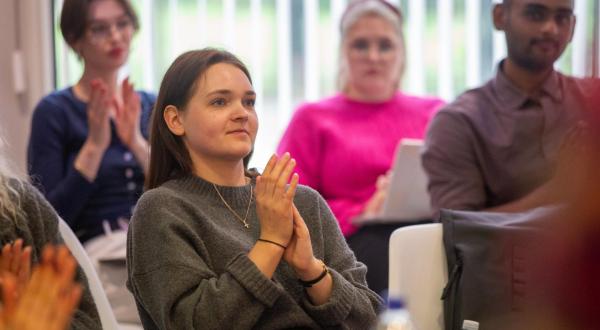 18 Student teams to start developing their ideas in B-Space incubation programmeFor RSU Employees, For Students, Innovation, B-Space
18 Student teams to start developing their ideas in B-Space incubation programmeFor RSU Employees, For Students, Innovation, B-Space